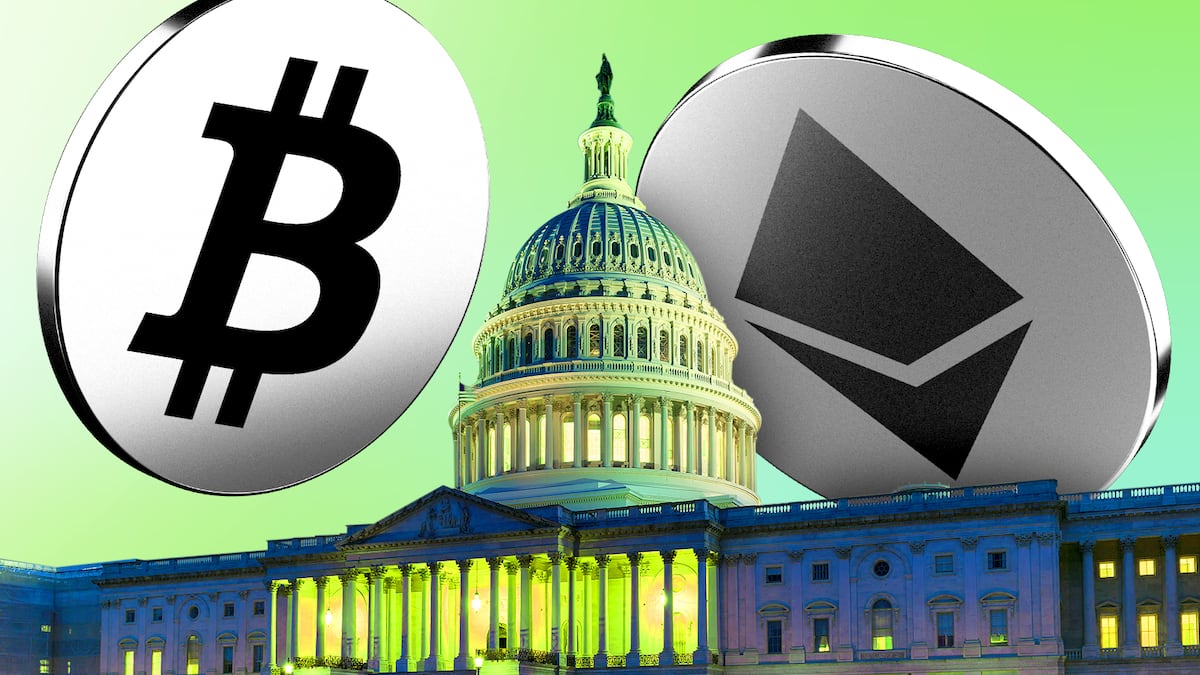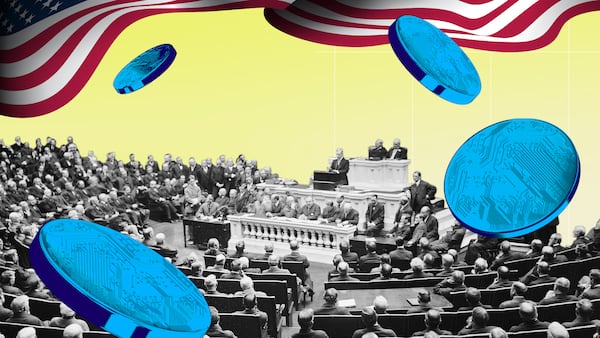- Three pieces of legislation are due for votes.
- Tornado Cash dev Roman Storm is set to go on trial in New York.
- Stablecoins, market structure, and crypto privacy may be become clearer quite soon.
A version of this story appeared in The Guidance newsletter on July 14. Sign uphere.
Crypto going mainstream is a cliché.
Yet years from now crypto investors will look back on this week and say this was it — the actual moment Bitcoin and its progeny became fixtures in the financial system.
Even as Bitcoin notches fresh all-time highs — the No. 1 cryptocurrency surpassed $122,000 on Monday — a flurry of legislative action in Washington is poised to usher in a new era for the asset class.
This week, the US House of Representatives is expected to pass three landmark bills.
Three acts
The Genius Act, which already cleared the US Senate, will set out rules for stablecoin issuers and managers.
The Clarity Act will establish regulatory jurisdictions for crypto and establish specific rules for various levels of decentralised ventures.
And the Anti-CBDC Surveillance State Act will prohibit the Federal Reserve from issuing a central bank digital currency to individuals.
Democrats have decried the bills as “corrupt” and a gift for President Donald Trump and his family, which have launched numerous crypto ventures and raked in at least $620 million in proceeds.
Still, there appears to be bipartisan support for the bills and they’re expected to win approval.
The Clarity Act and the CBDC bill will then have to go to the Senate for consideration, but the stablecoin legislation can go straight to Trump, who has vowed to sign it into law.
Statutory clarity
If that wasn’t enough, the legal boundaries of crypto privacy and smart contracts are set to be defined by a federal jury when Roman Storm, a developer at Tornado Cash, goes on trial in New York beginning Monday.
The upshot?
The crypto industry will soon have statutory clarity on the requirements for stablecoins, as well as which agencies will watchdog cryptocurrencies ranging from Bitcoin to memecoins. And the debate around CBDCs should finally be laid to rest, at least in the US.
But then comes the hard part — rulemaking and enforcement.
The new laws will not be magic wands that vaporise regulatory uncertainty.
On the contrary, officials at agencies such as the US Securities and Exchange Commission, the Commodity Futures Trading Commission, and even the Fed will have to write regulations putting the provisions of the bills into practice.
That takes time.
Meanwhile, the agencies will have to interpret the statutes as they watchdog crypto ventures. Until the regulations are set, this could lead to disputes, and litigation.
Even so, passage of the bills will embolden banks, asset management firms, and perhaps even public pension funds to strengthen their embrace of crypto, especially as fintech platforms such as Robinhood move aggressively into the space.
It may be only a matter of time before the mainstream cliché is proven true.
Edward Robinson is the story editor for DL News. Contact the author at ed@dlnews.com.









